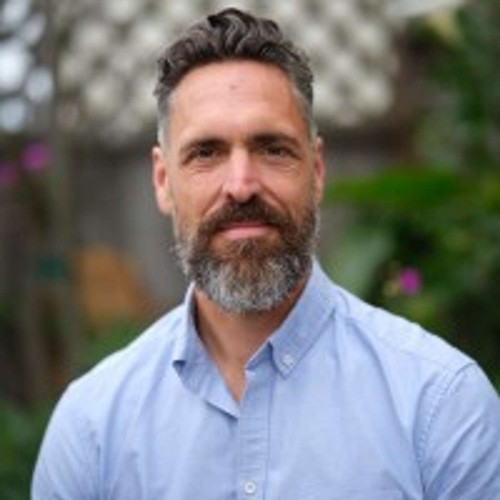
 Crazy Wisdom
Crazy Wisdom Episode #384: Beyond the Horizon: Exploring Consciousness and Reality with Erik Newton
In this episode of the Crazy Wisdom Podcast, host Stewart Alsop welcomes back Erik Newton for a profound conversation on consciousness, personal growth, and the nature of reality. Together, they explore the challenges of expanding awareness, balancing intention with surrender, and the philosophical implications of emerging technologies like Neuralink. Erik shares his deep reflections on fatherhood, the complexities of human suffering, and the pursuit of peace in a chaotic world. For more insights from Erik, you can connect with him on Twitter at @NewtonLaw.
Check out this GPT we trained on the conversation!
Timestamps
00:00 Introduction and Welcome
00:57 Diving into Consciousness
03:38 Exploring Human and Animal Consciousness
05:59 The Complexity of Suffering
09:20 Neuralink and the Future of Consciousness
14:55 The Nature of Reality and Simulations
26:45 The 1960s Consciousness Revolution
28:10 Exploring Consciousness and AI
29:13 The Golden Era of Innovation
30:30 The Inevitable Advancement of AI
31:06 Balancing Responsibility and Progress
32:47 Reflections on the 1960s
33:43 The Complexity of History and Innovation
36:59 The Concept of Solar Punk
44:55 The Philosophy of Surfing
47:38 The Struggle and Joy of Surfing
52:13 Concluding Thoughts and Future Plans
Key Insights
1-Consciousness as the Ultimate Focus: Erik Newton emphasizes that expanding consciousness is the most meaningful pursuit in life. He believes that whether it's our own consciousness, others', or even non-human consciousness, the act of expanding awareness is central to our experience and growth.
2-Balancing Intention with Surrender: A recurring theme in the conversation is the delicate balance between intention and surrender. Erik discusses how in activities like surfing, and in life more broadly, it's essential to have enough intention to take action but also enough surrender to accept reality as it is. This balance is key to navigating challenges without falling into the trap of frustration or suffering.
3-The Illusion of Control and Fear: Both Erik and Stewart explore the idea that much of human suffering stems from the illusion of control and the fear that arises when we attempt to predict and control the future. Recognizing this illusion can help reduce suffering and cultivate a more present and peaceful state of being.
4-The Role of Pain in Awareness: Erik highlights the distinction between pain and suffering, suggesting that while pain is an inevitable part of life and a necessary signal for awareness, suffering is often a result of our mental constructs and attachment to outcomes. Learning to transcend suffering while acknowledging pain is a significant step in personal growth.
5-Human Identity and Ego: The discussion touches on the role of ego in shaping our identities and how much of our suffering is tied to the ego's attempts to avoid fear. Erik suggests that while it’s impossible to completely shed the ego, we can learn not to be overly attached to it, thereby reducing its control over our lives.
6-The Complexity of Reality and Simulation: The conversation delves into the nature of reality, with Erik expressing that our perception of reality is a simulation created by our consciousness. He argues that this reality is "differently real" rather than more or less real compared to artificial simulations, highlighting the complex nature of our subjective experiences.
7-Optimism and Caution in Technological Advancement: Erik and Stewart discuss the importance of approaching technological developments like Neuralink with both optimism and caution. While they recognize the potential for profound advancements in consciousness and human experience, they also emphasize the need for a balanced, intentional, and thoughtful approach to avoid the pitfalls of naivety and unintended consequences.
